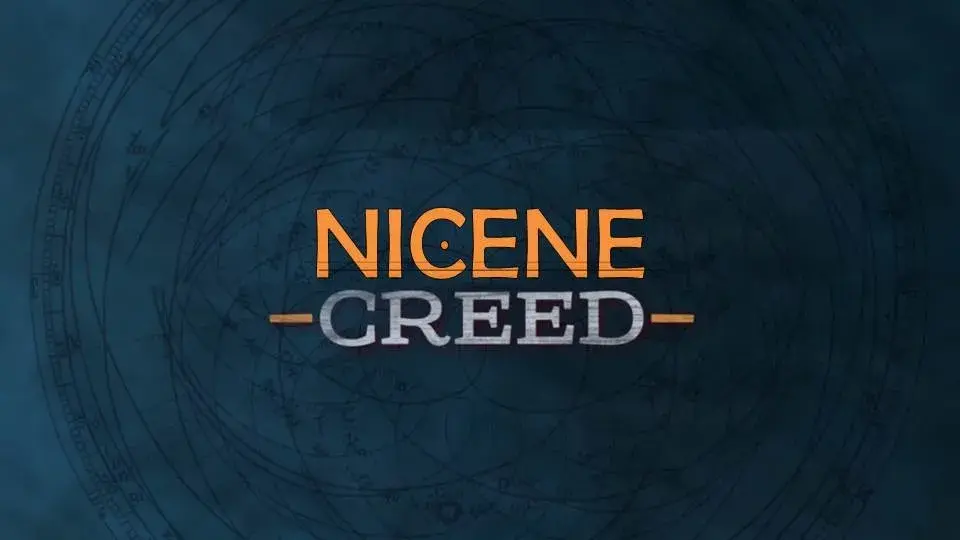He Was Appointed For The Rising And Fall Of Many
- Mark A. Smith
.JPG/v1/fill/w_320,h_320/file.jpg)
- Feb 11, 2024
- 3 min read

begotten, not made, being of one substance with the Father, by whom all things were made
Again, as Jesus Christ of Nazareth is the sole subject of the Creator taking the visible form of the creation, yet without surrendering the form of His personal Deity as the God-man equal to the Father and the Holy Spirit, we continue to define the nature of Jesus Christ and His association with the invisible Father. He is begotten in the flesh to take on the role of our penal-substitution (Rom.8:3-4; Phil.2:5-11), but He is not made from our mass of corruption at the core of His eternal being (Heb.10:5; Jn.1:1-3; 14), for He indeed is one with the Father and the Holy Spirit (Jn.10:33-38), co-existing as one Divine Being and substantial form of the invisible Spirit (Jn.8:58; Heb.11:6), but is distinct in the personal and individual soul of the same Spiritual essence of the one nature and substance of the self-sustaining life of God’s Being (Isa.41:20; 49:7; Ps.16:10; Acts 2:25-28; 13:32-41), for God is the I AM and maintains everlasting pre-existence in the unchangeable incorruption of the resurrected confirmation of the decree of WHAT I AM in the face of Jesus Christ (Ex.3:14; 2Cor.3:18; 4:3-6; 1Cor.15:10).
Therefore, by this divine decree (Gen.1:1), in life and death by His earthly work (Jn.5:16-18), all things were made through Him in His life and death as the Judge of the living and the dead (Rom.14:9; 2Tim.4:1-2; 1Pet.4:5). Therefore, though He is not the author of evil on the canvas of darkness (Isa.45:7), He is the Creator and Lord of Heaven and Hell by His crucifixion and resurrection (Rev.1:18), the two worlds torn apart by the one man’s work of sin and death (Rom.5:12-21; 1Cor.15:21-26; Matt.6:9-10; Jn.14:1-4).
Therefore, this earthly act to redeem the heavenly race demanded the creation of Hell to display the glory and fulness of God’s power in the creation that has had its purpose in God’s love for the glory of the Son from the beginning in the end of all things that Adam corrupted according to God’s perfections (Gen.1:31-2:3; Heb.4:1-5; Gen.3:22-24; Heb.4:6-10; Lk.23:43-46; Jn.19:30; Dt.32:4). Therefore Christ is begotten according to the flesh in the death of the common things but never made according to the Spirit of the holy things (2Cor.5:14-21 /emphasis on v.16).
Therefore, Christ is holy, harmless, and undefiled in body and soul by the sanctification of the Spirit as the divine image and substitute for sinners (Heb.7:24-28; Eph.2:13-18), by which adoption was purchased (Jn.1:12-13; Rom.3:21-26; Eph.1:5; Gal.4:5; Rom.8:15), through the pouring out of His priceless blood that represented eternal life, according to the tree of life, that was in the midst of Paradise.
Therefore, He is the only begotten Son, by whom redemption was made for those regenerated by the breath of His soul and the words of His spirit (Jn.6:49-58, 61-66), which are one with the voice of the Father’s divine and eternal decree of Providence and the Holy Spirit’s witness of Heaven and earth in the creation and destruction of Death and Hades in the lake of fire as the eternal judgment of the Son (Matt.17:5; Acts 3:22; Lk.3:22; Jn.5:22-27), who is the Beginning and the End of the Firstborn of all of creation (Rev.1:5; Col.1:15; Ex.13:11-16), the Elect One of Israel’s Seed (Isa.42:1; Num.24:8; Hos.11:1; Gal.3:16).
It can even be claimed that their importance becomes progressively enhanced. In the Eastern Churches the questions and answers at the moment of baptism eventually disappeared: all that remained was the triple sprinkling with the words “So and so is baptized in the name,” etc. The Constantinopolitan Creed after the abjuration of the devil is the only profession of faith which survives in the service, and its form is of course declaratory. In the West this never happened, though occasional hints crop up that the importance of the questions and answers diminished (e.g. they might sometimes be dispensed with in the case of a sick baptizand who had already recited the declaratory creed), and in the end they were detached from the immersions.
J. N. D. Kelly, Early Christian Creeds, Third Edition. (London; New York: Continuum, 2006), 38.























Comments